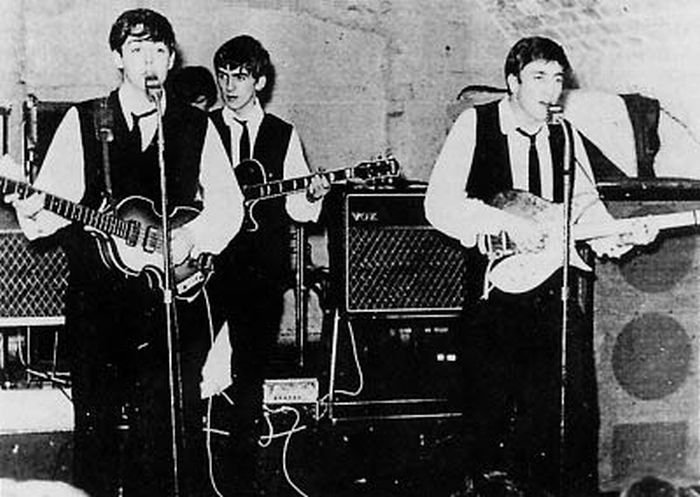|
|
History: Early Years Of The Beatles
|
• Influences
The Beatles' earliest influences include Carl Perkins, Elvis Presley, Little Richard and Chuck Berry, whose songs they covered more often than any other artist's in performances throughout their career. During their co-residency with Little Richard at the Star-Club in Hamburg, from April to May 1962, he advised them on the proper technique for performing his songs. Of Presley, Lennon said, "Nothing really affected me until I heard Elvis. If there hadn't been Elvis, there would not have been The Beatles". Other early influences include Buddy Holly, Eddie Cochran, Roy Orbison and the Everly Brothers. The Beatles continued to absorb influences long after their initial success, often finding new musical and lyrical avenues by listening to their contemporaries, including Bob Dylan, Frank Zappa, The Lovin' Spoonful, The Byrds and The Beach Boys, whose 1966 album Pet Sounds amazed and inspired McCartney. Martin stated, "Without Pet Sounds, Sgt. Pepper wouldn't have happened. ... Pepper was an attempt to equal Pet Sounds."
• Genres
Originating as a skiffle group, The Beatles soon embraced 1950s rock and roll, and their repertoire ultimately expanded to include a broad variety of pop music. Reflecting the range of styles they explored, Lennon said of Beatles for Sale, "You could call our new one a Beatles country-and-western LP", while Allmusic credits the band, and Rubber Soul in particular, as a major influence on the folk rock movement. Beginning with the use of a string quartet on Help!'s "Yesterday", they also incorporated classical music elements. As Jonathan Gould points out, however, it was not "even remotely the first pop record to make prominent use of strings ... it was rather that the more traditional sound of strings allowed for a fresh appreciation of their talent as composers by listeners who were otherwise allergic to the din of drums and electric guitars." The group applied strings to various effect. Of Sgt. Pepper's "She's Leaving Home", for instance, Gould wrote that it "is cast in the mold of a sentimental Victorian ballad, its words and music filled with the clichés of musical melodrama."
|
|









